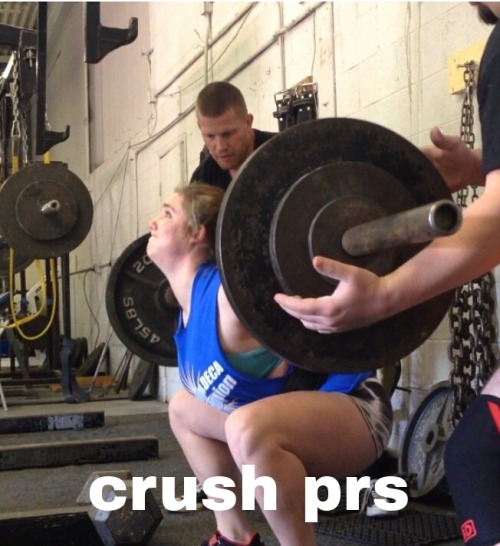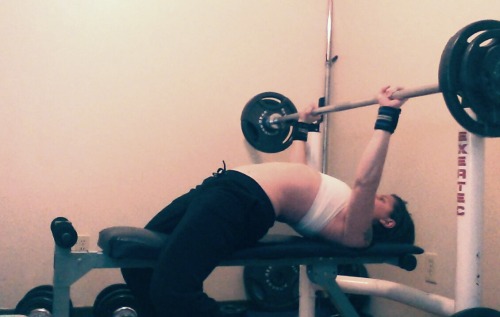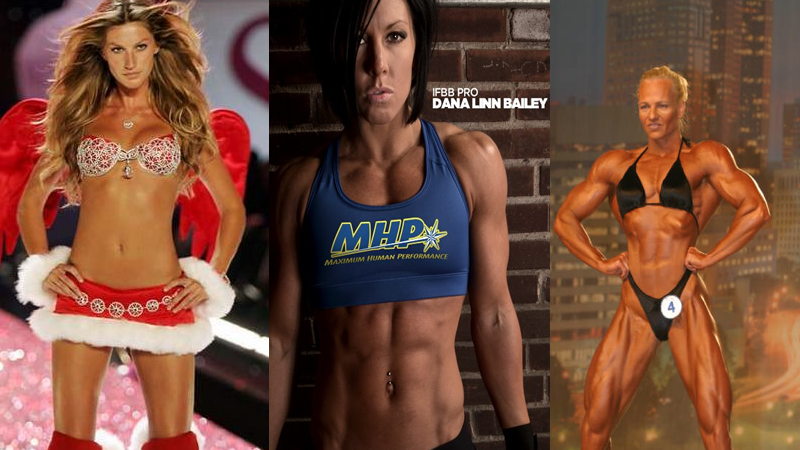The Mind Muscle Connection
“I never ‘feel’ squats in my legs, my back always hurts the next day!”
“I don’t understand triceps push downs, they always hurt my shoulders.”
These are common complaints I hear from people working out. You can replace any exercise and any body system and hear this with almost any move, especially as the weights get heavier. There are a lot of factors contributing to this problem.
1) Proper Form
First of all, an exercise should never “hurt.” Proper form is essential to a healthy, happy life in the gym. Sacrificing form to move heavier weights often leads to injuries. If you’re performing an exercise for the first time it’s imperative that you research the movement. Start out with almost no weight and attempt the movement multiple times. Once proper form is established, you may have fixed your initial problem and prevented further injury.

Instagram user “Squattingunicorn” demonstrates a full depth squat
2) The Mind Muscle Connection
This is really the crux of this article. A lot of people go through the motions of a movement without really thinking about the movement as it applies to their training. Are you growing bigger biceps? Are you strengthening your glutes? Is this a carry over exercise to improve your sticking point on the bench? Why are you doing this move?
Once you identify the purpose of your exercise you need to focus on that intention. This is why we use cues like “squeeze on up” and “drive through your heels.” There are areas that should be focused on during a move to make it more effective and powerful.

Tumblr user iron-inside displays the powerlifting method of bench pressing
Next time you’re doing an exercise ask yourself these questions.
“What is the purpose of this exercise? What am I hoping to gain from this?”
“Which muscle(s) am/are I utilizing?”
“At the start of the move, what am I feeling?”
“As I progress through the move, what am I feeling?”
“At the end of the move, what am I feeling?”
These will help you narrow down what you should be focusing on. If you find that certain parts of the movement accentuate your goals, focus on those. Lower your weights and focus on that part of the move. Squeeze, hold, pulse, do whatever you feel will focus this move.
I’ll give you a great example.
I’ve been trying to build my lats for the better part of 6 months. I read that lat pull downs were the best way to do this. I loaded up the machine and repped out 12-15 reps of lat pull downs as heavy as I could. I rarely felt sore (which isn’t necessarily a sign of “doing work” as some would like to think) in my lats, and instead I’d feel it in my shoulders. My lats did not grow, but my shoulders were fatigued and painful. I was flirting with injury.
One day I saw a video of an IFBB pro doing lat pull downs. Not only was she sitting differently, but her elbows were pointed a different way than mine, her head was tilted differently, and her weight was much, much less than mine. But her lats were HUGE! I watched her slowly bring the bar down, hold for half a second, and then slowly raise the bar back up.
Oh. It hit me – I had been going about this whole move the wrong way. By sacrificing form for weight I’d been performing the movement inappropriately and was missing out on all the benefits that came with the movement. Once I lowered the weight and slowed down my movements to really focus on the individual aspects of the move my lats grew the way I wanted. My shoulder pain disappeared, as did some other aches and pains from the poor form.
The mind-muscle connection is an often overlooked part of anyone’s training plan. Identify your goals and focus on your moves and you’ll get more out of your workout.
